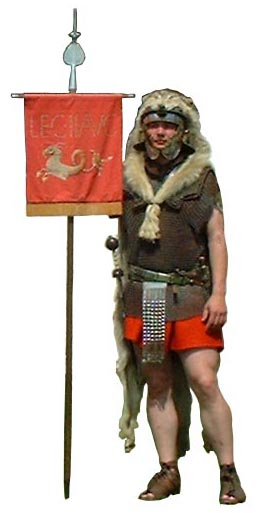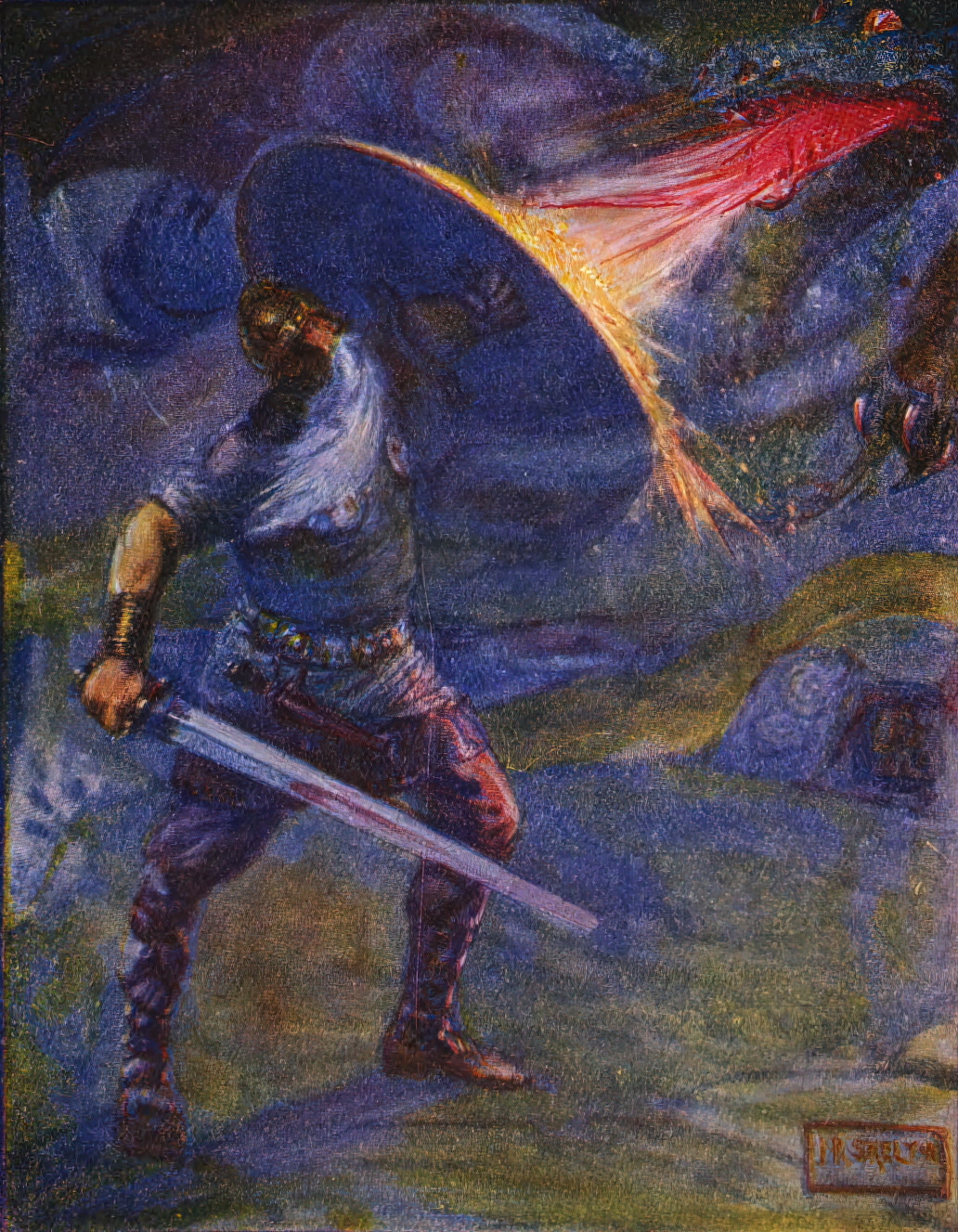There is little to say about this posting. At Beowulf's dying request, Wiglaf brings him a sample of the dragon's wealth. Beowulf is still alive when he returns, but still bleeding. Beowulf thanks God that he has won a treasure that would be of use to his people after he is dead. He gives instructions about how he is to be buried: burned and then his remains placed in a tower, near the sea, so that sailors would see it and remember his name. He wills his golden necklace, coat of chain mail, and gold-decorated helmet to Wiglaf, then dies.
----------------------------------------------------------------------------------
He filled his arms with flagons and plates 2775
and chose to bring the banner, too,
the brightest beacon. The blade of his old lord--
its edge was iron-- had earlier wounded
the one who had guarded the wealth of treasures.
down through the ages. It endured blazing flames, 2780
hot, for the hoard's sake, a hostile upwelling
late in the night, till he lost the struggle.
The herald hurried, hoping to return,
goaded by goldwork, greedy to learn
if the iron-willed would find him alive,
where he waited, the Wedera lord,
his power failing, in the place he was left.
So he fetched treasures to his famous lord,
the one he followed, and found him bleeding
in his last moments. He must again 2790
wash him with water, till the word's thrusting point
broke through the breast hoard.1
The elder saw gold in the arms of the youth.
"I give thanks for this gold to God Almighty,
"have words of praise for Heaven's King,
"the Lord of Life for letting me see
"what I have won of worth to my people,
"before my death to find such riches.
"For the treasure hoard I have now tendered
"the last of my life. Then look after 2800
"the country's needs. I cannot remain."
"Make veteran men mound up my barrow
"to shine after the fire, facing the sea
"to bring me back to my people's minds
"as it watches from high on the Whales’ Headland,
"so that sailors will say it is
"Beowulf's Barrow, aboard their ships,
"the men who sail through mists at sea."
He took from his neck the torc of gold,2
the glorious king, to give to his thane,
the young hero, and a helmet with gold
with the torc and sark, and he said, “Use them well.
“You are the last one alive of our clan,
“the Waegmundings. Wyrd swept them off,
“all my family to their fated deaths,
“earls in their might. I must follow.”
The old man spoke no other word
before accepting the seething blaze,
the funeral fire, then, flying outward
his soul set off to seek true judgement.
1It seems like only half a line.
2Possibly
the one that Queen Wealhtheow had given to Beowulf and that he, in
turn, had given to Queen Hygd.





